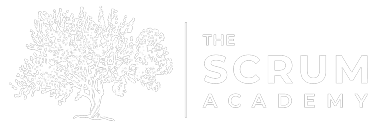Scrum is People Focused
Today in my twitter feed Thomas Schranz (@__tosh) published an article about The Dark Side of Scrum that was complete and utter dren. I suppose that makes me a Scrum fanatic, but what Thomas described in his article bears no actual relationship to anything commonly described as Scrum. In fact, the article is akin to complaining about all the evils of money in politics and then saying democracy sucks.
Let’s examine all the ways this article gets it wrong about Scrum
- Scrum is an Agile process. I would even go as far as to say Scrum is a Lean process defined by respect for people, continuous improvement, pull and just-in-time decision making. At the heart of Scrum are a set of values and principles (what I call the Spirit of Scrum) that drive the behaviors of the participants and support organizational change. IMO, the purpose of Scrum is to change your organization. It is squarely focused on improving the skills of the individuals and their interactions.
- ScrumMasters have absolutely no authority to enforce anything. There is no Scrum cop or Scrum enforcer. The ScrumMaster is a Servant Leader dedicated in supporting the Team, the business, the customers and the wider social context the business exists in. The only thing a ScrumMaster really does is remind people of the commitments they made to one another. Now the ScrumMaster has a responsibility to preserve the meaning of Scrum and protect the values and principles.
- The only person I am aware of who claim that Scrum is appropriate for all contexts and products is the author of the original article. Certainly no one in the Scrum community claimed that Scrum was the single silver bullet. In fact, one of the co-creators of Scrum, Ken Schwaber, said as early as 2005 that if you are successful using waterfall, keep using it.
- At its foundation, Scrum has ALWAYS been about cross-functional Teams empowered to create and develop a product from end-to-end. Anyone who claims that Scrum is about siloing product developers from the business, testers away from programmers or UX professionals away from the Team has not been listening to a single thing the Scrum community has been saying for 10+ years. Most of my time is spent breaking down silos not supporting them nor creating them.
- The Daily Scrum, aka Stand-up meetings, are not about status reporting and never have been. The Daily Scrum is the opportunity to reconnect with your peers and figure out if you are one-track or off-track to deliver. If you are on-track, the conversation is short-and-sweet. If you are off-track, then the people who need to fix the problem stay after the Daily Scrum to figure out what is needed to get back on-track.


